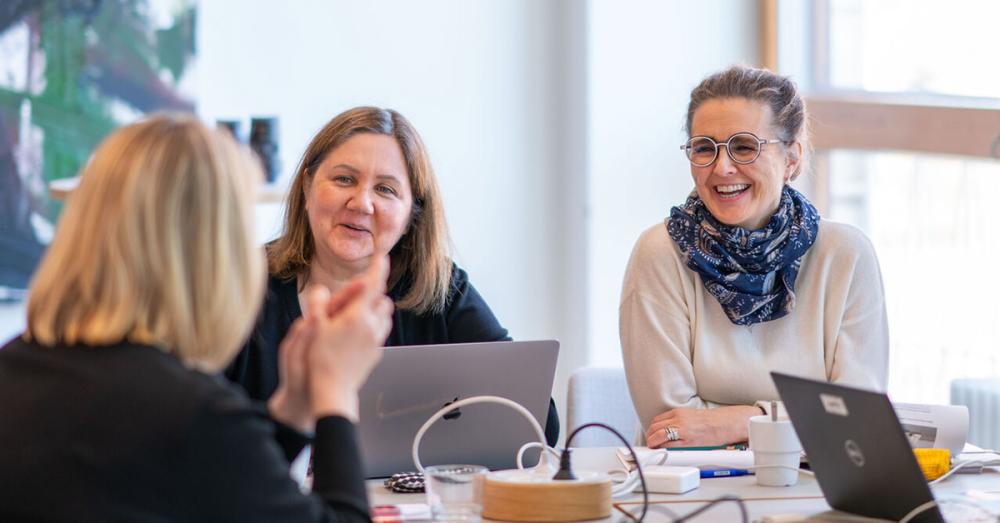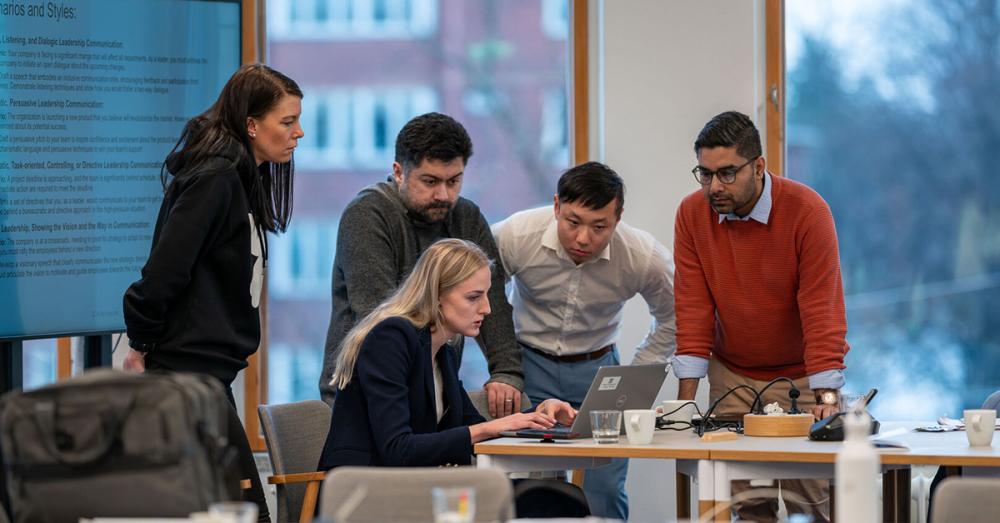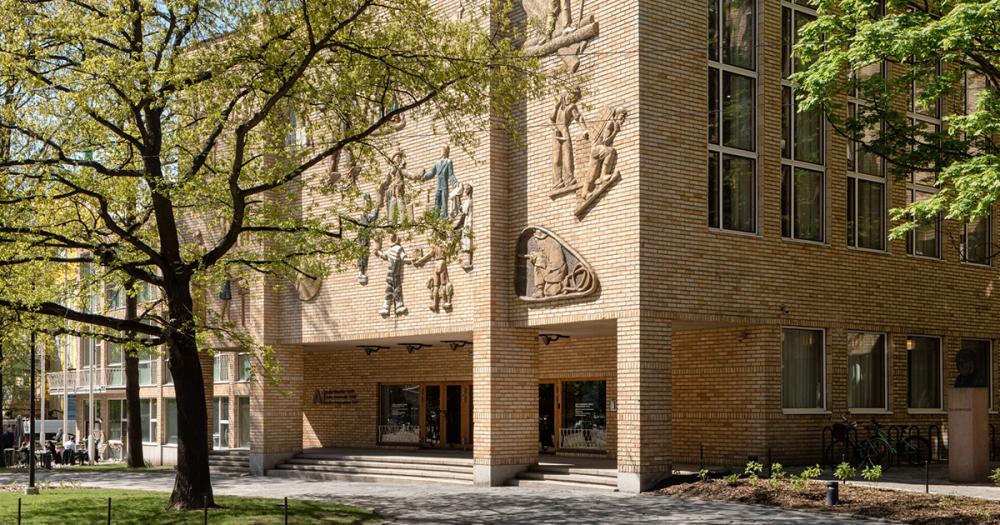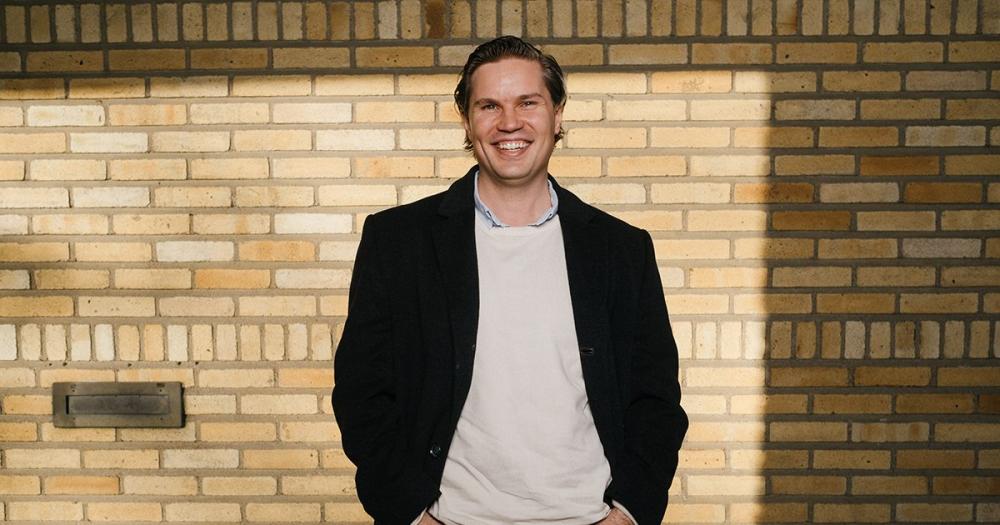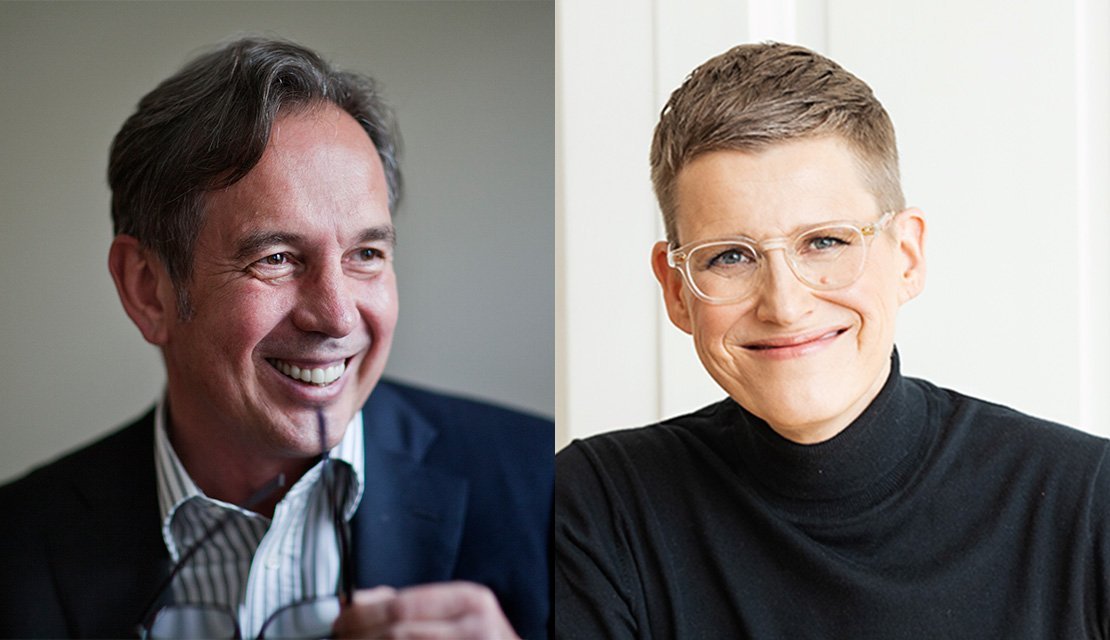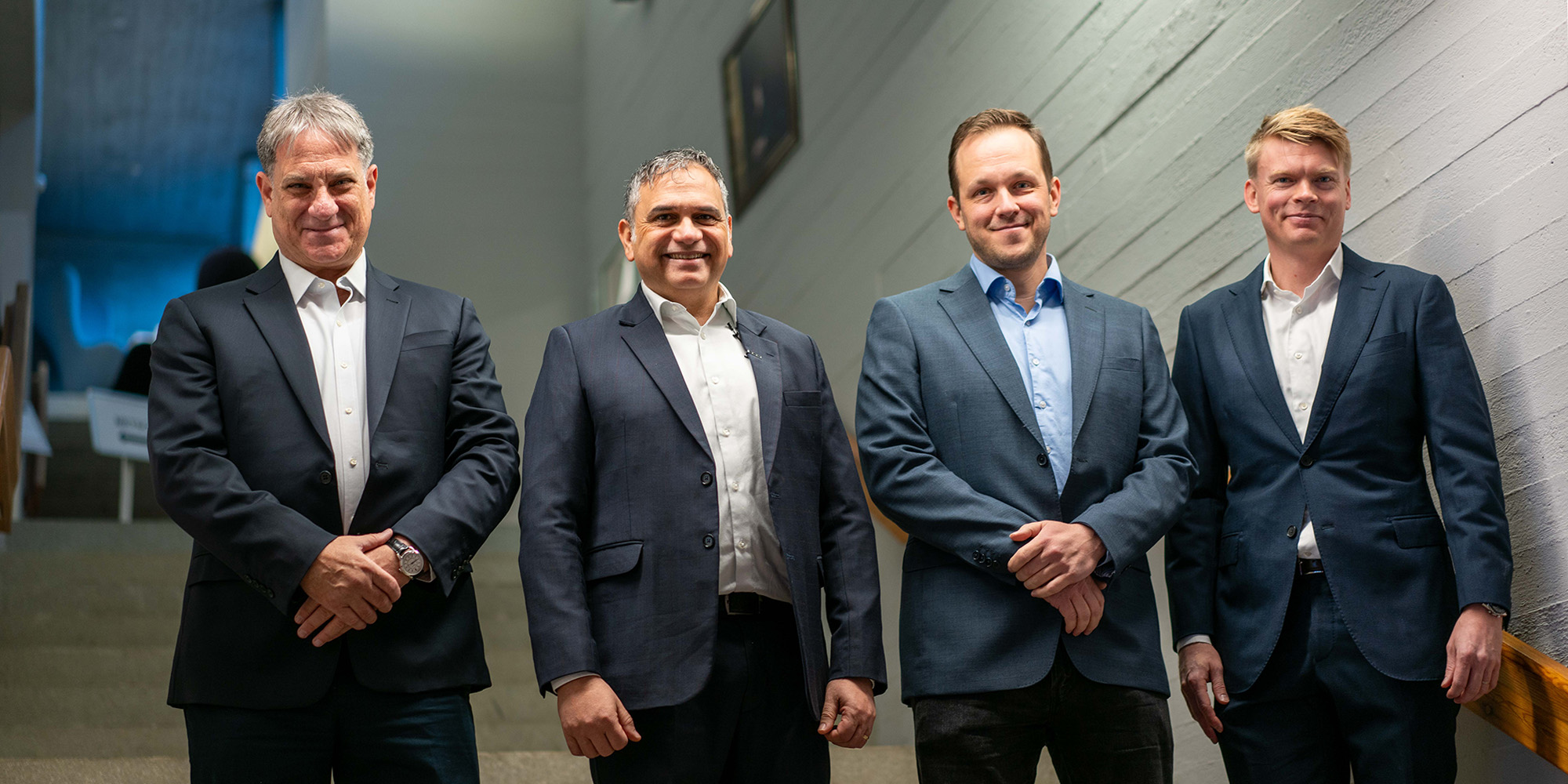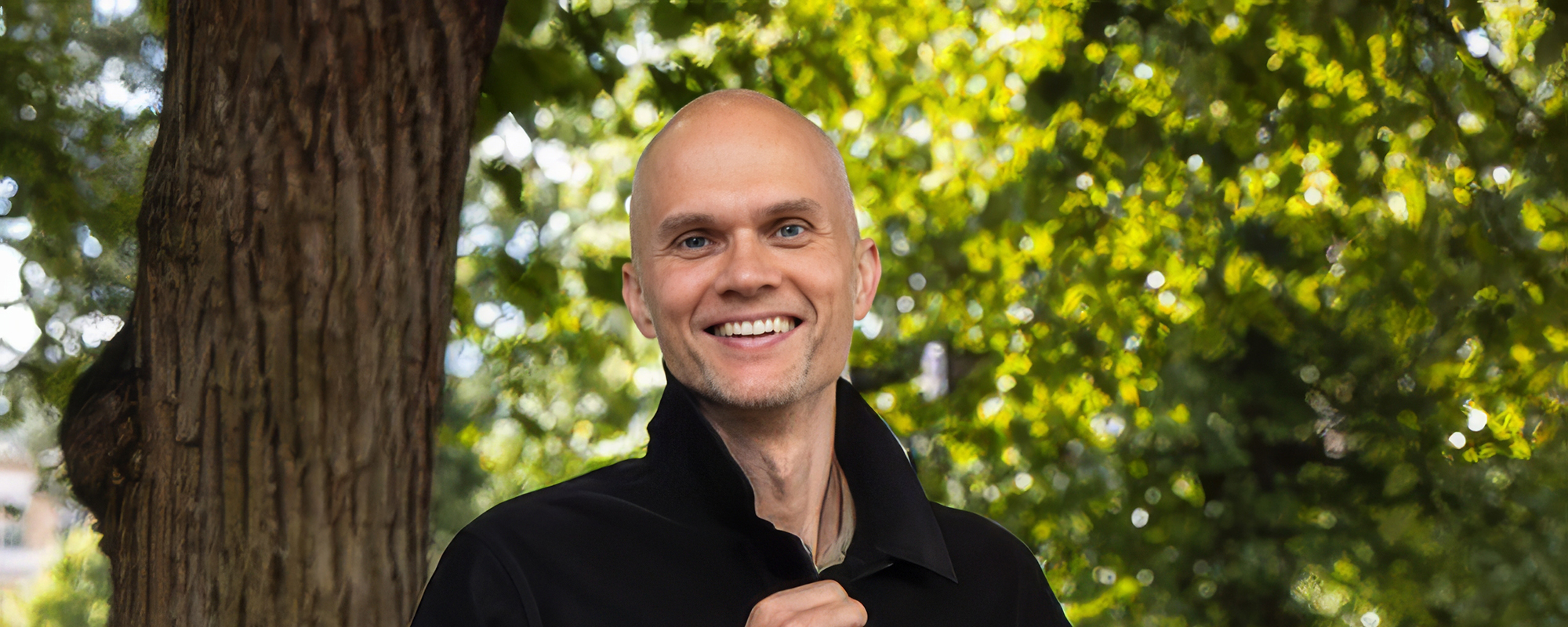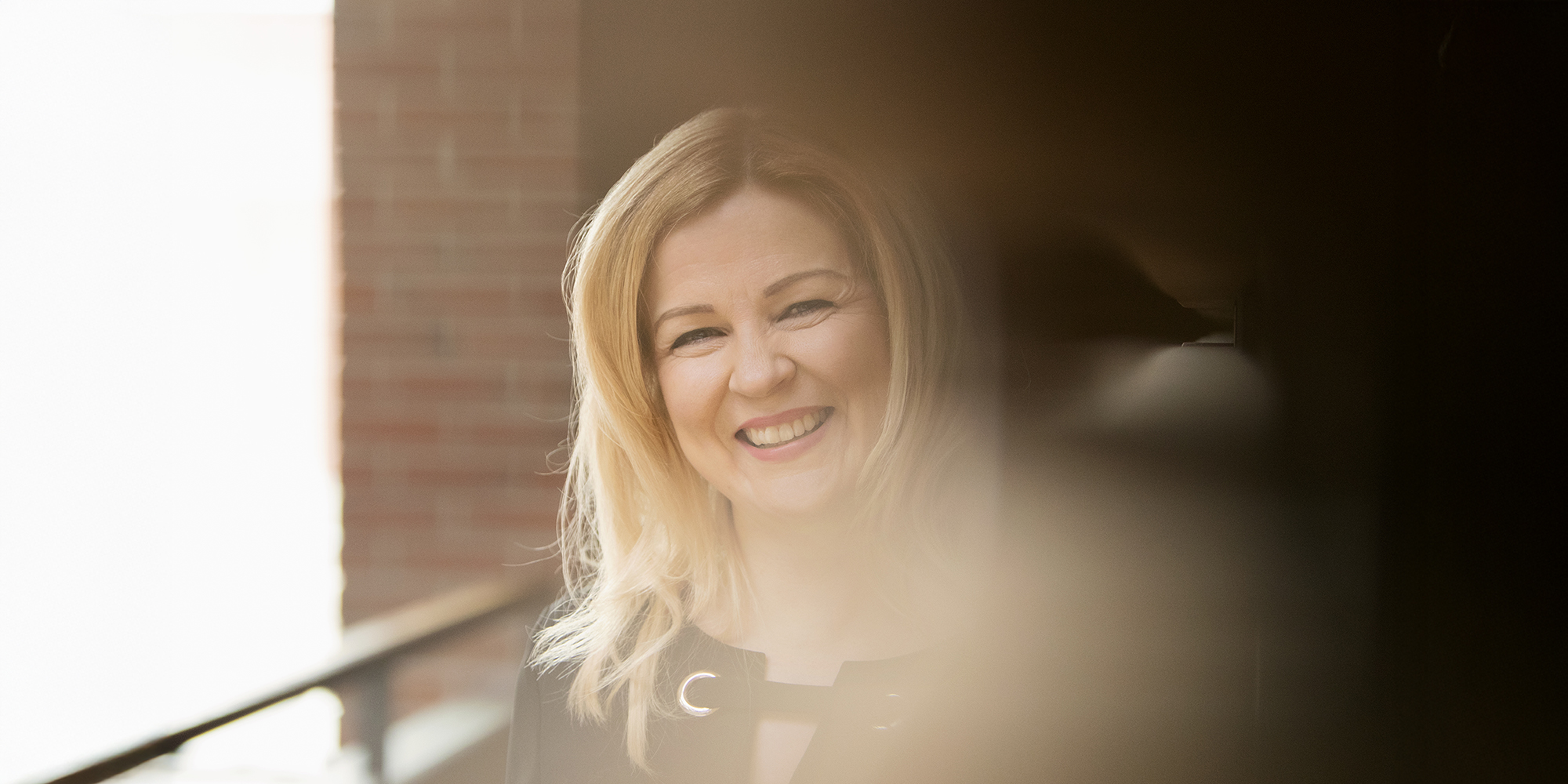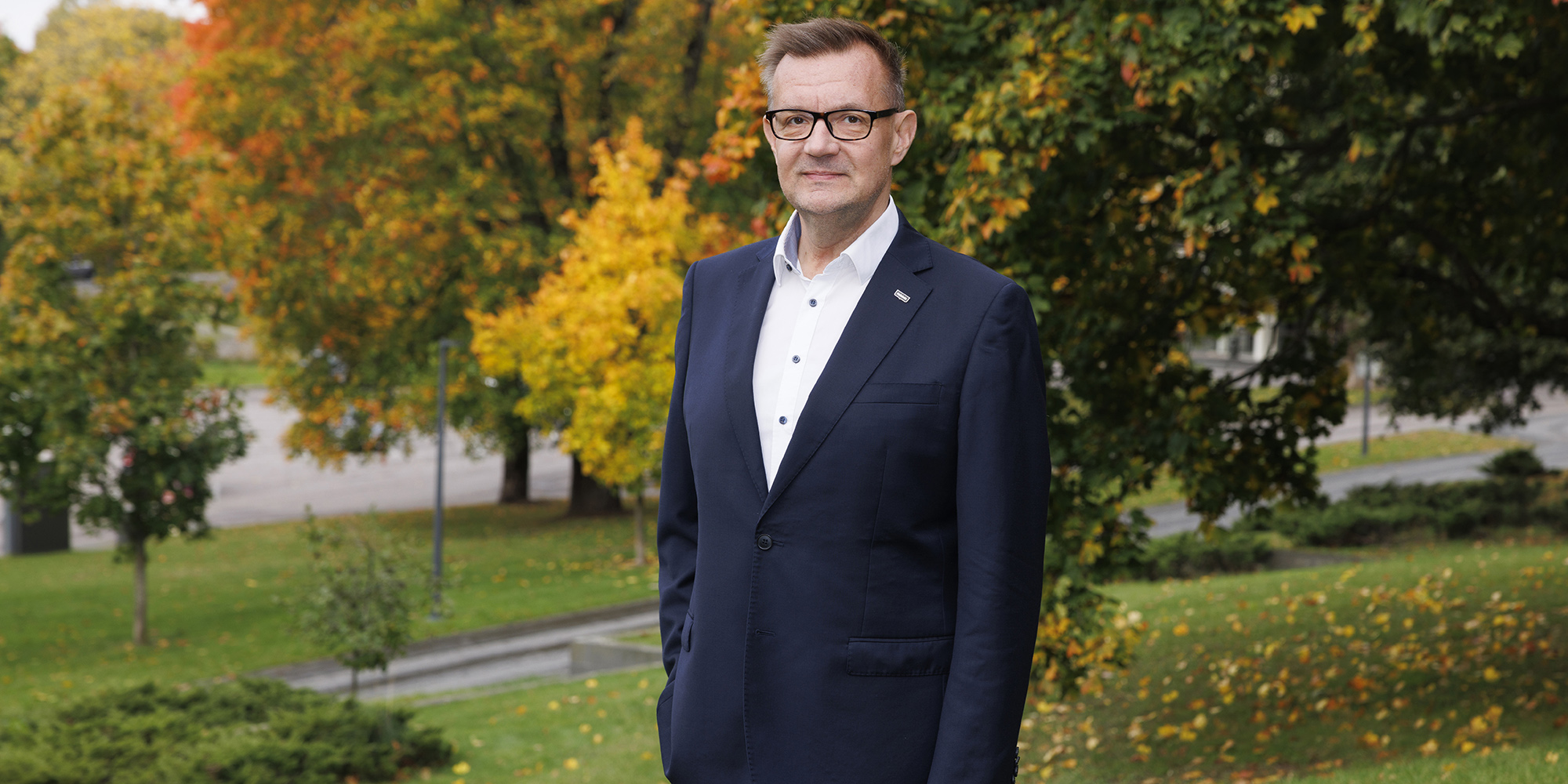The journey to great leadership is one of continuous growth and development, and it starts with the leader herself. Too often leaders rely on the skills they know they already master, instead of pushing themselves in new directions and learning new skills. The most successful leaders, however, make personal development a priority, as they know the only way to get the best out of who they are and what they have to offer is to make personal development an ongoing commitment.
This is also why the Aalto MBA and Aalto Executive MBA programs include a built-in personal development process designed to help the participants grow as leaders and individuals through enhanced skills and competencies related to self-development and self-awareness. The process spans the entire study period.
It is widely accepted that high self-awareness is a valuable predictor of effective performance and future professional success as a leader.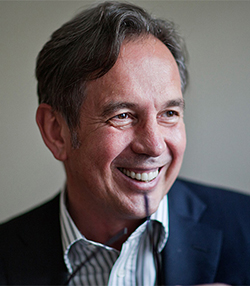
"I see clear evidence that leaders with high self-awareness are more self-confident, make better decisions, create and maintain high levels of effective collaboration, are less likely to allow stress to influence their performance, and experience more joy in their personal lives," says Ben Nothnagel, Senior Advisor at Aalto EE.
Nothnagel has been instrumental in designing the personal development process included in the Aalto EE programs from the very beginning. The current version of the process is the result of joint efforts of Nothnagel and Senior Executive Coach Ira Lange.
Low self-awareness is dangerous
From an organizational point of view, the importance of continuous self-growth and self-development boils down to the requirements faced by the leaders of the future. According to Lange, one of the key elements is understanding complex human systems.
"Whether structured to teams, units, departments, or larger organizations, people are part of a system, and the system is part of the society at large. This requires mastering team dynamics and interaction, and understanding the difference between leading a team versus leading the individuals on a team. Context matters", Lange says.
If you want to grow as a leader, you have to reflect upon your own development. You can't move forward if you're unable to look in the mirror and own up to your mistakes."
High self-awareness helps leaders anticipate their own emotional reactions and, consequently, better manage their mindsets and behavior – or as Nothnagel puts it, helps leaders foster a workplace climate that is conducive to high performance, profitability and wellbeing.
"If you want to grow as a leader, you have to reflect upon your own development. You can't move forward if you're unable to look in the mirror and own up to your mistakes. Today's leaders must lead by example," says Rescue Commander Jani Pitkänen from the Helsinki City Rescue Department, who finished his EMBA studies in December 2021.
In the Aalto MBA and EMBA self-development process, program participants focus on both internal and external self-awareness. According to Nothnagel, internal self-awareness entails being able to identify patterns of behavior that benefit or limit one's own wellbeing, joy, performance, or results. External self-awareness refers to the impact one has on others.
"Leaders need to recognize what happens in their vicinity. Human interaction and connection are physiological experiences: when you enter a room with other people present, your nervous system responses gradually converge. Individual neural system starts to form and compose a collective neural network in the common space. This is how and where we actually connect, so to speak. That's why you have to be aware of the various ways you influence people around you. Simple things like facial expressions play a role in how a meeting turns out," explains Ira Lange.
Low self-awareness, in turn, prevents us from using the right skills in different situations and with different people, adds Nothnagel. "It limits our ability to improve our leadership capabilities even if we wanted to. It leads to performance that is way below our existing ability or potential."
Emotions impact team performance
Ira Lange is a strong advocate of conversational or coaching leadership. Top-notch communication skills are of particular importance when things go wrong. A great leader is able to navigate through any challenges that may arise and, taking on the role of a coach, help employees identify their own skills and competencies needed in various situations.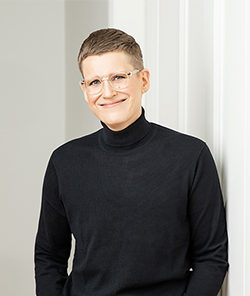
"Being a great leader is not about letting your own ego shine. You should not even pursue a leadership career if all you care about is me, myself, and I. You must genuinely care about your people and get your kicks from their success," Lange says.
Another key skill for future leaders, then, is understanding and managing emotional intelligence and empathy. Research shows that emotions influence, among others, human cognition, communication, and behavior. No wonder we no longer refer to emotional intelligence as a soft skill.
"Emotional intelligence in a nutshell is about understanding the impact of your emotions on your own performance, the effect you have on others, and how to manage that impact or effect accordingly. As Professor Timo Vuori [Aalto University] says, emotions impact team performance. When team members recognize and consider each other's emotions, they work better together," says Ben Nothnagel.
You should not even pursue a leadership career if all you care about is me, myself, and I."
According to Nothnagel, understanding and managing emotions is essential for relationships, decision-making, and performance. "If you want your team to get work done, you need to know how to empathize, build loyalty, promote belonging, and then motivate and possibly inspire them to reach ambitious personal and organizational goals. This, of course, requires the skill of paying attention to moments that impact performance and relationships both at the office and at home.”
Treat attention as a practice
The personal development process in the MBA and EMBA programs includes two individual coaching sessions for each participant. They've been designed to support the process itself as well as the participants' overall personal growth.
"We have talked about shame and fear, how these feelings impact leadership performance, and how they can be seen not as weaknesses but as strengths. How to turn your mess into your message, so to speak", says Ira Lange.
For Jani Pitkänen, the coaching sessions were among the high points of the entire self-development process. "I found the process extremely important, and the one-on-one discussions with the coach were rewarding and empowering."
In an increasingly uncertain world, we often operate on auto pilot, and that limits the options we think we have or the quality of the decisions we make."
The coaching sessions also promote the skill of paying attention. This is because paying attention is where true leadership development starts, explains Nothnagel, referring to Ronald Heifetz, Founding Director of the Center for Public Leadership at the John F. Kennedy School of Government, Harvard University, who says that paying attention is the currency of leadership.
"In an increasingly uncertain world, we often operate on auto pilot and don't pay attention to the people we lead, love, or collaborate with, and that limits the options we think we have or the quality of the decisions we make," Nothnagel says.
Self-awareness bolsters the hard skills
The targeted outcome of the self-development process is to measurably contribute to the participants' wellbeing and their ability to reach their potential. During her time as a coach in the MBA and EMBA programs, Lange has witnessed various transformation journeys.
"Everyone has become better, in various ways, at identifying and articulating issues and concerns, gained confidence in their own abilities and courage to lead in the face of adversity, connected with their values as leaders," Lange says.
Some participants have reported feelings of an invisible support growing inside, giving them strength, confidence, and calmness. Others have gained trust in being able to find solutions to difficult challenges whereas in the past they have rather felt helpless, waiting for someone else to come up with answers.
Although some participants have been cynical at the beginning, they have soon shed their doubts after setting off on their self-development journey as they have been encouraged to explore and reflect on how the process can bring them tangible benefits both personally and professionally. Nothnagel also likes to cite the view held by Harvard Continuing Education that high emotional intelligence bolsters the hard skills, making you a better engineer, a better lawyer, a better CEO.
"Being able to identify your own patterns of behavior and how they impact others is extremely important, as is realizing the effect your own growth and development has on those around you. Having high self-awareness and acting on your values builds trust and credibility on yourself as a leader. It also helps you discover your employees' strengths and support their development", says Jenniina Montonen, HR Shared Services Manager at the paints and coatings company Sherwin-Williams, who will soon receive her MBA degree from Aalto.
Leaders are also human beings
A growing number of organizations have already come to realize that investing in the personal and professional development of their leaders helps to sharpen their competitive edge when it comes to attracting high achievers.
"The younger generations shun the stone-age style of leadership. They are not willing to work for an organization that doesn't let them grow as human beings. With the increasing shortage on top talent, employer reputation is definitely something to consider," says Lange.
The younger generations shun the stone-age style of leadership. They are not willing to work for an organization that doesn't let them grow as human beings."
For Jani Pitkänen, implementing the tools and methods of modern leadership was the key takeaway from the entire program.
"My predecessor believed in hierarchical leadership. I wanted to bring in a culture of participation, listening to the personnel, interacting with them, and being present. I wanted to lead by example, address grievances, and show my own vulnerability, too. I'm their leader, but I'm also a human being," Pitkänen recounts.
"We talked a lot about vulnerability-based trust", adds Jenniina Montonen. "About how sharing personal emotions and experiences at the workplace helps build trust, bring teams closer together, and create a strong foundation for navigating conflicts. Being allowed to express yourself and your ideas freely has a positive impact on performance, too."
Work from your own strengths
On a personal level, Jani Pitkänen feels his greatest achievements include becoming a better listener and learning to stop micromanaging his team, delegating and redirecting questions and issues to appropriate levels of the organization.
"I admit to having a strong desire to stick my nose in every issue, but I try to focus on strategy and let the operative management handle day-to-day matters. I didn't have a lot of strategic management experience when I took on my current role. The EMBA program provided great support in helping me grow into it," Pitkänen says.
His efforts are beginning to bear fruit with all workplace wellbeing indicators on the upward trend in the latest survey.
"It's a long process and there's still a lot to do, but people are happy with the new sense of acceptance and inclusion and the increased openness to expressing differing views without a fear of retribution."
Challenging yourself is important for going forward. One of my key takeaways from the process was the realization that the comfort zone is a stagnant zone."
For Jenniina Montonen, the process provided the necessary push to break away from the comfort zone.
"Challenging yourself is important for going forward. One of my key takeaways from the process was the realization that the comfort zone is a stagnant zone. It motivated me to continue on the path of self-development."
Montonen admits to experiencing feelings of uncertainty at the beginning of the process and finding a sense of relief in realizing that she was not the only one having these thoughts about herself as a leader.
"The process helped me gain an overall understanding of what my strengths and weaknesses are as a leader and communicator and identifying areas where I can develop myself. It also made me realize that there are many ways to be a good leader and that you should work from your own starting points and strengths. It doesn't pay to compare yourself to others, we are all unique. The process was very practical and offered many insights and tools that I've been able to apply to my own organization and my day-to-day work."
Happiness starts at home
Parthiban Amarasigamani, who works as Global Alliances Manager at the computer and network security firm Fortinet, started his journey at Aalto EE with the Global Leader general management training program, a great springboard for MBA and EMBA studies. The Leading Change module included in Global Leader, which focuses on developing awareness and skills in how to lead and coach yourself, your team, and your organization through change, made him reflect upon his shortcomings as a leader and the areas of development he needed to focus on.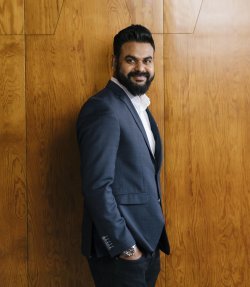
"I used to be very short-tempered and wanted things to happen immediately, both at work and in my personal life," says Amarasigamani, who received his EMBA degree in 2019. "Now I try to listen and assess the situation first instead of reacting immediately and going into panic mode. I'm much more resilient and better able to address chaotic situations, which are all the more common in this volatile, uncertain, complex, and ambiguous world we now live in."
Amarasigamani also took advantage of the personal development process in his home life, which he sees as a great contributor to his overall wellbeing.
"My self-development goal may sound naive, but it is to be happy. I wanted to learn what my happiness triggers are and how I can incorporate them into my everyday life. I also asked for feedback from my wife, children, and even in-laws to learn what changes I needed to make. In India it's typical for career-oriented people to work for 10 to 12 hours a day and then go do their own thing, coming home when the kids are already asleep. I wanted to change that and spend more time with the family so that's what I do now. Happiness starts at home."
Aalto EE offers two MBA programs: Aalto MBA and Aalto Executive MBA (EMBA) where participants experience a journey of transformation, including elements of personal leadership transformation as well as business and organizational transformation. Read more

